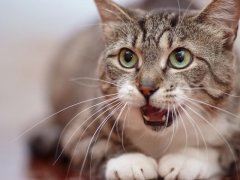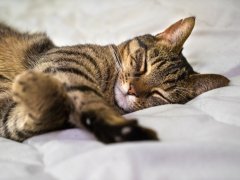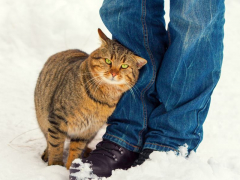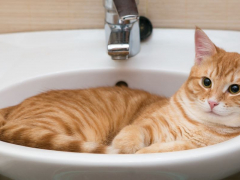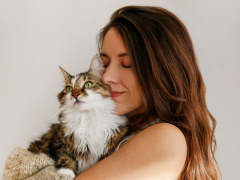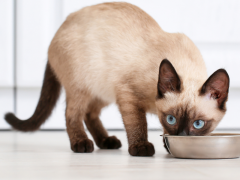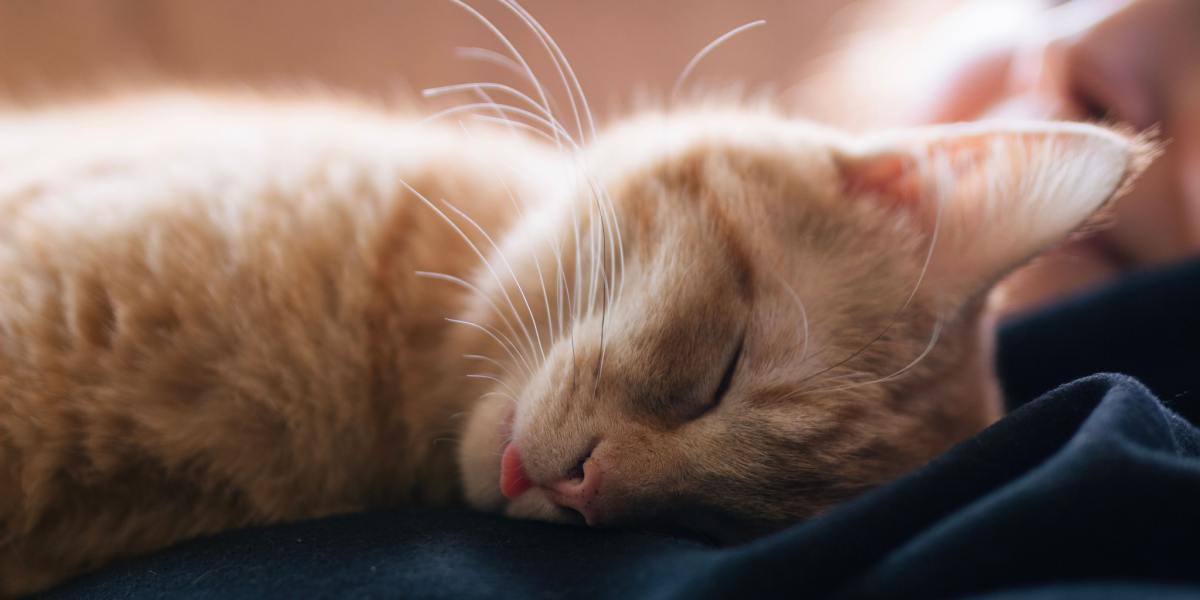
When you notice your cat with the tip of their tongue poking out, it’s up there with the cutest cat moments. But you’re probably wondering why your cat does it. Are they just trying to be cute? Or is there a more important reason for it? This article will cover the common causes of cat blepping, whether behavioral or medical.
What Is ‘Blepping’?
“Blepping” is when your cat leaves their tongue poking out just a little after grooming, licking, meowing, or any other activities. It often seems like they’ve stuck their tongue out and forgotten to put it back in, and it’s a common behavior among cats! Yes, it’s adorable and makes your cat look super cute, but have they genuinely just got distracted, or is there more to it than that?
Also Read: Why Do Cats Stick Their Tongue Out?
Why Do Cats ‘Blep’?
You probably won’t be surprised to know that your cat isn’t just trying to melt you when they blep, but pleasing you does have something to do with it. Here are some of the common reasons for blepping:
1. They’re Investigating A Scent
Did you know that cats don’t just communicate vocally, but also through scent? They can gain a lot of information about their environment and its occupants by detecting smelly compounds called pheromones.
Their tongue collects pheromones and while their tastebuds investigate the taste, they also have special receptors that can interpret what the scent means. They do this via the flehmen response, where they curl their lips to transfer the pheromones to the vomeronasal organ or Jacobson’s organ on the roof of the mouth.
2. They Know You Like It
It’s widely known that dogs are very trainable, but did you know cats are too? Cats will often adapt their behavior to make us happy or please us, to get a reward like a cuddle, treat, or praise.
So, if you react positively when your cat bleps, they’re bound to notice. Soon you’ll find that they blep on purpose so that you sweet talk them, tickle their chin, or give them something tasty! This is known as positive reinforcement and is a recognized pet training technique.
3. Their Mouth Is Sore
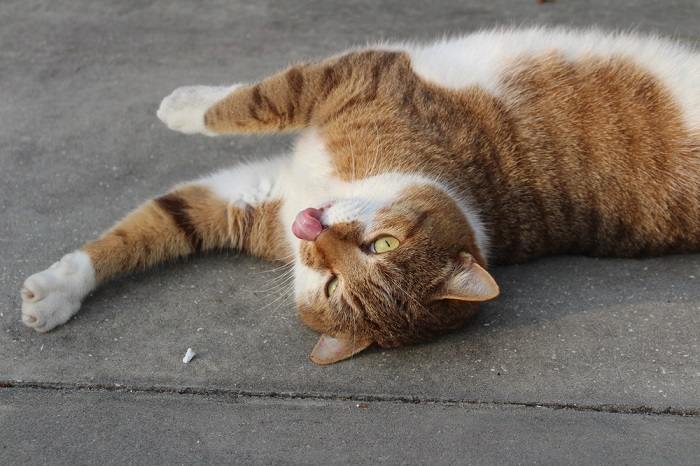
Sometimes blepping is a sign that something is amiss in your cat’s mouth.
If your cat has sore gums, stomatitis, and inflammation or infections from periodontal disease, their mouth will probably feel very painful.
Therefore, your feline family member might find it more comfortable to allow their tongue to hang out a little, rather than keeping it in their mouth. You might also notice this if your cat has ulcers from advanced kidney disease, or after licking caustic or irritant substances.
Alongside blepping, your cat might also dribble more than usual and go off their food. You might also notice that their breath smells particularly bad.
4. They Feel Sick
When cats feel nauseous, they often dribble a lot. Having a lot of saliva in their mouth might cause them to keep their mouth relaxed or ajar. This means that their tongue may poke out a little bit naturally. If your cat is feeling sick, you might also notice that they vomit, stop eating, or pass diarrhea.
5. They’re Struggling To Breathe
Dogs love to pant, but cats panting can be a sign of breathing distress. If your cat has been open-mouth breathing, you might notice their tongue sticks out. Open mouth breathing in cats is often an emergency, so make sure you seek help from your vet straight away.
6. They Got Distracted
If you’ve got a cat, you might enjoy watching them grooming. After all, it’s pretty cute when they lick their paws and rub behind their ears. But have you ever noticed your cat stop midway through grooming because of a distraction?
One common reason for cat blepping is being interrupted or distracted during a grooming session.
7. They’re Relaxed And Contented
When your cat is relaxed, contented, or purring, you might notice their tongue sticks out a bit. If you’re unlucky, your cat might even start drooling a bit!
This is sometimes because when your cat is feeling content or is dozing, their jaw muscles relax a little, leaving the mouth slightly open. This small gap in the mouth is the perfect size for the tip of the tongue to sneak through!
8. They’re Missing Some Teeth
One of the reasons why a cat’s tongue stays put in their mouth most of the time is because their teeth hold it in place. If they’re missing large teeth like their canines (fangs), their tongue might slip out more easily.
Should You Be Worried If You Notice Your Cat ‘Blepping’?
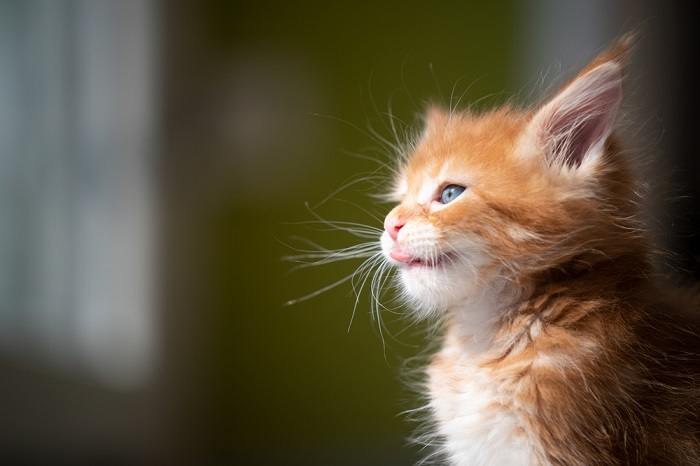
Blepping is usually harmless, but if it’s accompanied by other symptoms check with your vet.
If your cat is a regular “blepper” you don’t need to be too worried, especially if they’ve had regular checkups with the vet. Blepping can be a normal cat behavior and, as owners, you might try to actively encourage it.
However, if your cat didn’t use to stick their tongue out much but you suddenly see them with their tongue hanging out, it’s likely to indicate a problem. This is especially true if they have other symptoms like a reduced appetite, pawing at their face, drooling, weight loss, or bad breath.
If you are concerned that your cat’s blepping might be abnormal, make an appointment with your veterinarian or a certified cat behavior consultant.
Conclusion
There’s no denying that blepping makes your cat look adorable. However, it’s worth remembering that blepping can be a sign of a medical problem. So, if your cat hasn’t always behaved this way, getting a vet’s perspective or seeing an animal behavior consultant could be useful.
Also Read: Mouth Cancer In Cats: Causes, Symptoms & Treatment
Frequently Asked Questions
Is it normal for cats to BLEP?
There are many causes of blepping in cats, and some reasons are perfectly normal. Cats rely on blepping to help them get information about their surroundings and furry companions, and they might even use it to look cute and get some attention from you!
However, blepping can also indicate a medical or health problem like mouth pain, dental disease, nausea, or poisoning. So, contact your vet if your cat is behaving unusually or seems unwell.
Why does my cat's tongue stick out a little?
If your cat’s tongue has begun sticking out a little, it could be that they have missing teeth. It could also mean that they are feeling sick, in pain, or having trouble breathing. The most important thing to notice is whether your cat’s tongue position is unusual for them. If it is, you should get them examined by your vet.
What is the difference between a BLEP and a MLEM?
A blep occurs when your cat’s tongue just seems to hang out, without any movement and with no particular purpose (it might seem!). On the other hand, a "mlem" is when your cat actively licks something, either around their mouth or from sources of food or water.
Why is my cat blepping while sleeping?
When your cat is sleeping, they’re at their most relaxed. This means that their jaw muscles will slacken and their mouth might hang slightly ajar, allowing their tongue to slip out a little. As long as it’s only when they’re sleeping, think of it as a good thing, because it means they’re happy to chill and be vulnerable in their environment.

